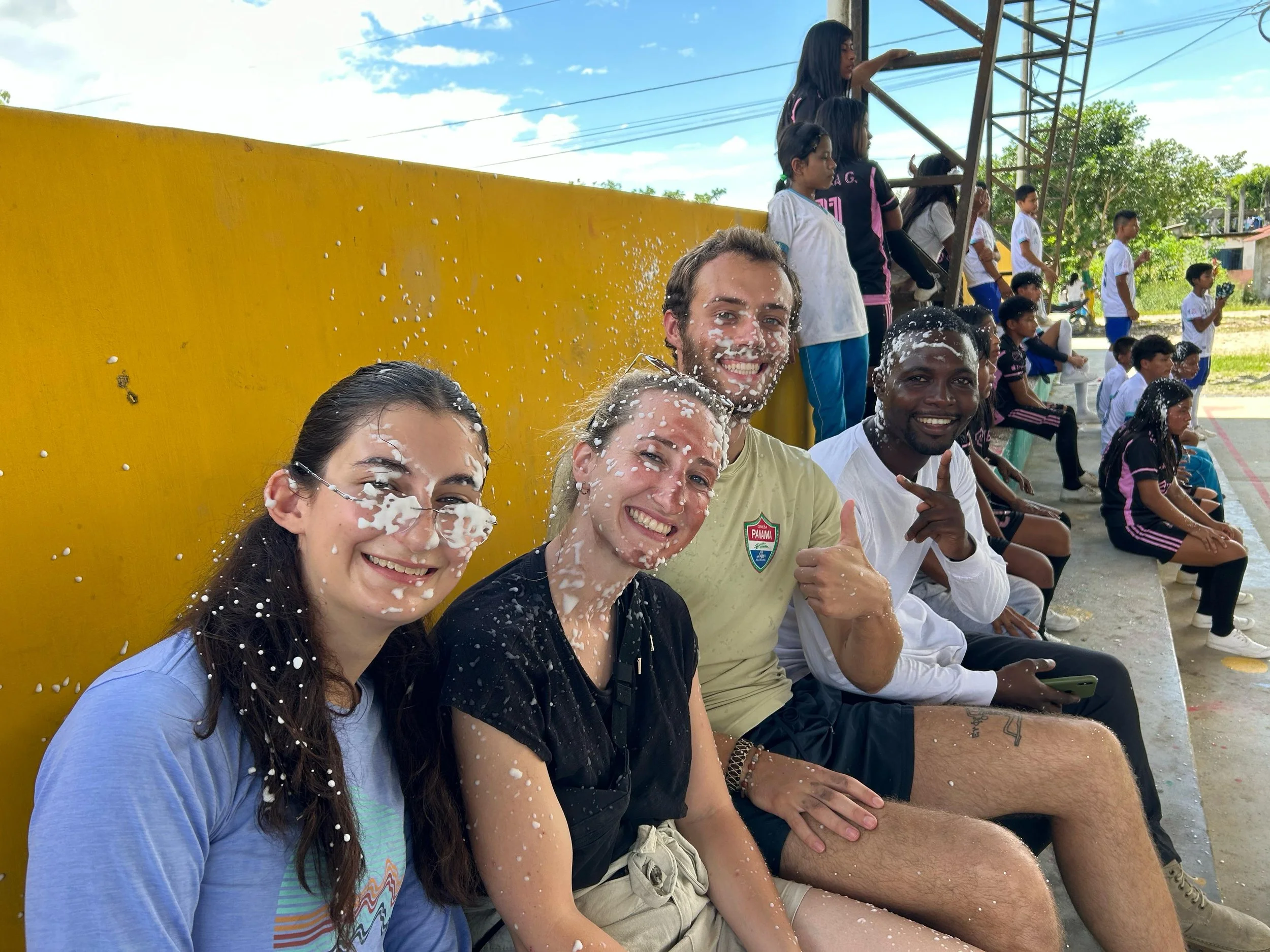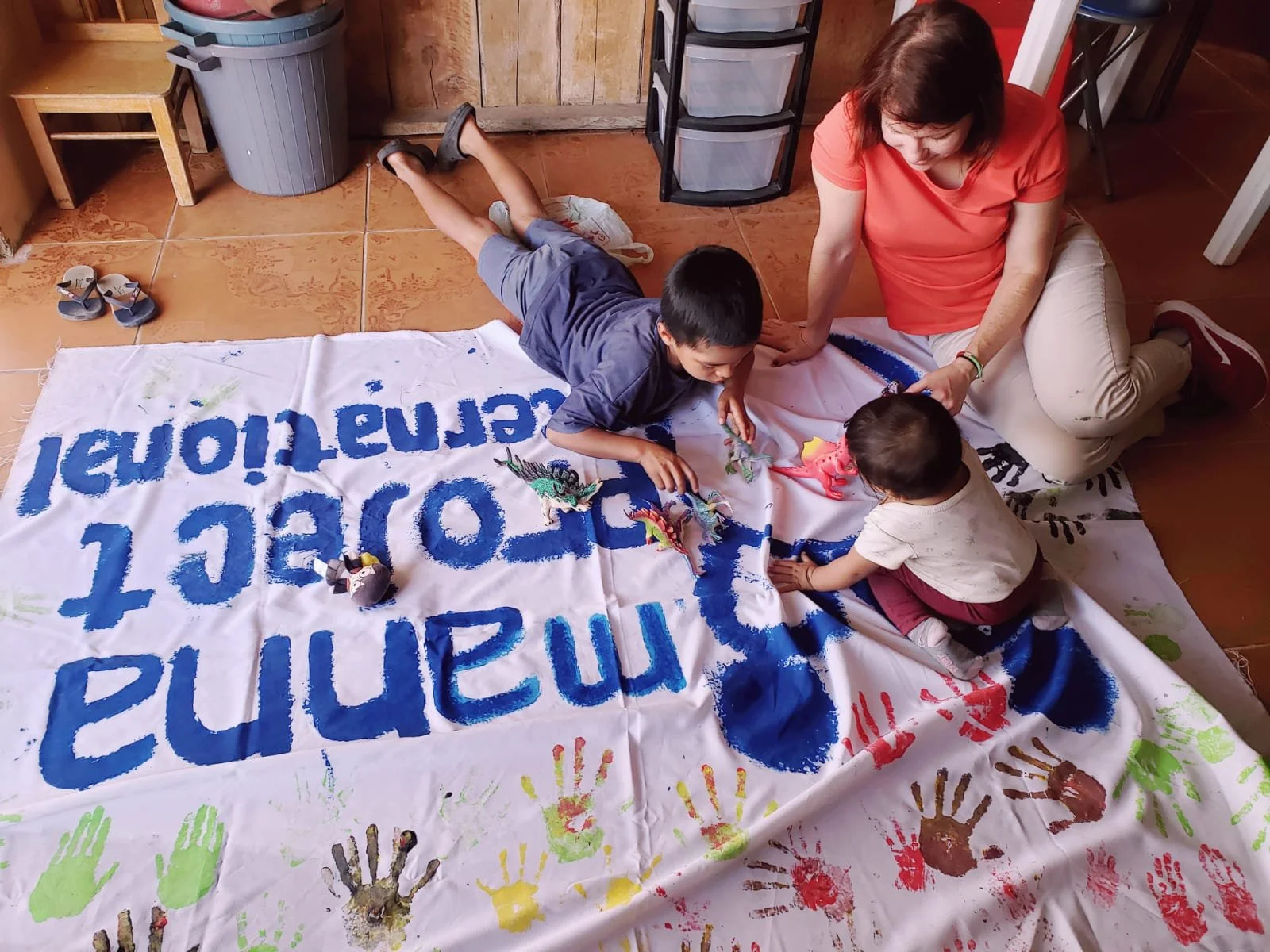A Day with the Military
Wednesday started at 5:30 AM with a 1.5-hour car-ride in a military-owned vehicle to a military base just north of Quito. Upon arrival, we were greeted with a camp-style breakfast and men dressed in uniform. Not to mention the soundtrack of gun-shots, airplanes, and Arabic prayers playing over the loud-speaker on repeat. For 7AM, we were all a little confused as I am sure whoever reading this is at this point. Let me backtrack a bit. El Valle de Los Chillos has a strong military presence since there is an Ecuadorean base nearby. Therefore, many of our students are active in the military or have family in the military. One of our English students came to us the other day asking for a favor –to help with the final English examination of the UN Peacekeepers. We weren’t exactly sure what this entailed, but myself, Cate, Heather, and Taylor agreed to the challenge. After our delicious breakfast, we were each given a piece of paper explaining the “situation” and our roles as workers for different NGOs. Our roles: mine to act as an official from the UN Refugee Agency (UNHCR), Cate from UNESCO, Heather from the UN World Food Program, and Taylor from Doctors without Borders. The situation: a rebel up rise and civil unrest somewhere in Africa causing many people to flee their homes and settle in refugee camps. In my case in particular, the UNHCR had supplies to deliver to the refugee camps but could not successfully deliver them without the security of UN soldiers. One-by-one, the UN Peacekeepers in training would approach my table and have 10 minutes to figure out what I needed from them and how they could fix the issue (all in English). Perhaps the hardest part of this whole role-playing situation was the fact that I was supposed to act mean in some situations, and over-friendly in others. In the words of the soldiers evaluating the UN Peacekeepers, “try to make the one girl cry and maybe flirt with some of the guys.” After the first few rounds, the evaluator at my table started laughing at my inability to act mean. After 2 hours of role-playing, it was time to watch how our 4 different stories would come together. We were taken to another building in the compound where a tall Canadian soldier greeted the 13 UN Peacekeepers. The Canadian started to grill them about what they learned about the situation and was not afraid to call bullshit on their stories. The 4 of us sat there, feeling bad for some of the Peacekeepers whose English was not up to par, and realizing how much information we had to make up to answer many of the questions they asked us (for example, some guy asked me for my radio station number, and I didn’t even know I had a radio, so I just said I didn’t have one. My evaluator cracked up at this one). Overall, the day was extremely eye opening and interesting. Although the situation was hypothetical, we felt pretty cool having such a responsibility in a largely official and important task. All the soldiers we met were overly nice, and have even offered us houses to stay in during our future travels in Ecuador.











